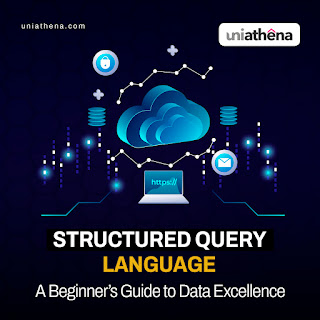Transforming Business Intelligence into Strategy through Smart Systems
Every business today operates on data, but only a few truly understand how to transform that data into informed decisions. An MIS Diploma Course provides you with that advantage. It is not only about having knowledge of more tools, it is about learning how systems, strategy, and technology can be combined to achieve intelligent operations and assured leadership.
In a digital world, where digital fluency is essential, MIS is not only a skill set for IT professionals, but it is also necessary for every progressive leader.
Why MIS Is the Nerve Center of Every Modern Business?
The core of all lean processes, evidence-based decisions, and cooperative departments is a key element, which is Management Information Systems. Unlike just a technical support role, MIS today plays a strategic role across business functions, from operations to executive decision-making.
An effective MIS is at the centre of the organization. It links people, processes, and data so that organizations are able to react to the changes in the market, optimize their performance, and remain competitive.
Unlocking Business Value: How MIS Shapes Smarter Organizations
Operational Awareness in Real-Time: When it comes to rapidly changing industries, timing is everything, and a delay in any decision is a lost opportunity. MIS platforms enable organizations through real-time dashboards and alerts, which provide teams with real-time visibility into the performance indicators, inventory levels, and customer feedback.
Smart, Information-Based Decision Making: MIS provides a summary of the business by obtaining information across various departments. Leaders will be able to know the trends, make predictions, and even test various strategies prior to their implementation.
Competitive Edge through Strategic Alignment: The organisations that apply MIS in the strategic planning process are more flexible and ready to face the future. MIS contributes to growth and innovation as it helps in taking long-term decisions involving complex modeling and what-if analysis.
Exploring the core: Key Types of MIS Every Professional Should Know
All types of MIS perform a specific role, but collectively, they form the basis of smart decision-making within an organization. Here’s how:
Transaction Processing Systems (TPS): These are the backbones of day-to-day operations, encompassing sales order entry, payroll and billing. They make sure that the transactions have been charged correctly , which is then used in analysis and reporting.
Office Automation Systems (OAS): OAS tools help to make document creation, meeting scheduling, and communication management more productive by automating and simplifying the daily administrative tasks.
Decision Support Systems (DSS): These systems are not just about ordinary data, but they enable complex data analysis and decision-making. They are particularly beneficial when various variables need to be considered, such as product launches or financial planning.
Executive Information Systems (EIS): EIS is designed to support top management, providing high-level, summarized data to help in strategic decision-making. It offers visual dashboards and KPIs, which enable executives to track business performance at a glance.
Why Short, Smart Learning is the Future
With digital fluency as a workplace need, traditional long-term programs do not suit the dynamics of a changing career. This is why online short courses are on the rise.
This Diploma in MIS Course is a self-paced learning program designed to fit into the busiest schedules and can be completed in just 1 to 2 weeks of learning. This course equips you with knowledge of system design, data security, application software such as Microsoft Dynamics and Excel, as well as the basics of cybersecurity.
Additionally, completing this course will equip you with a Blockchain-verified certification to showcase your learning.
Ready to build your decision-making edge?
The information can be in every corner, but the real benefit is in finding the way to put the dots together and transform the raw data into understandable, strategic results. Whether you're in operations, finance, marketing, or managing teams, having a grasp of how information systems work and how they can be used to inform a business strategy is no longer a specialized skill, but it’s a core competency.
Ready to do more than just learn how to do processes and how to optimize them?
Begin with this MIS Diploma Course, a self-paced program to become a more data-driven professional. Explore now.



Comments
Post a Comment